Hair Loss
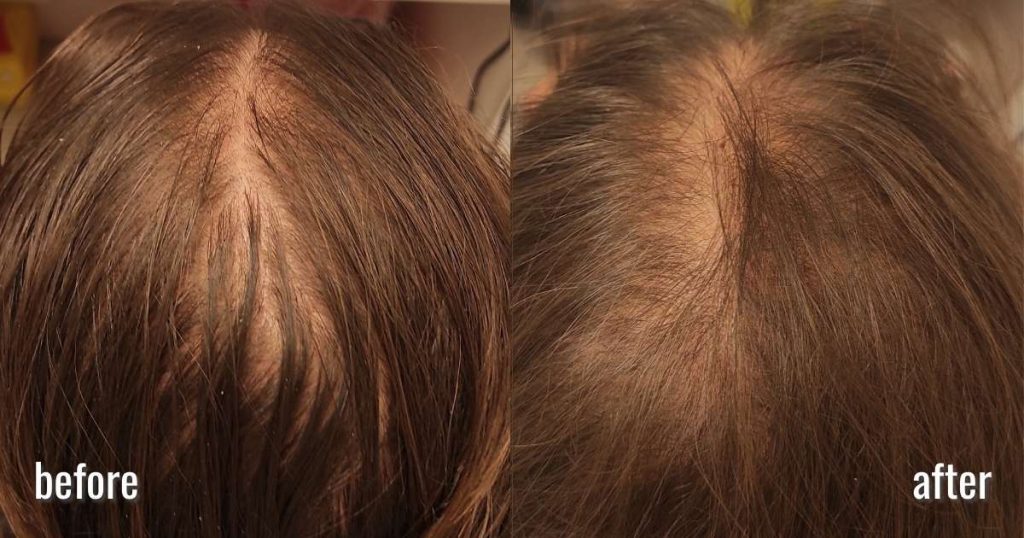
Millions of men and women suffer from hair loss today. Regardless of how common it may be, it is undoubtedly a stressful experience for both sexes. Often, people who suffer from hair loss experience problems such as a dramatic drop in self-confidence, feeling less attractive, withdrawing from themselves, and even depression.
Hair loss
Hair loss (alopecia) can affect your scalp or your entire body, and it may be temporary or permanent. There is usually no cause for concern when it comes to hair loss, but it may be a sign of a medical condition occasionally. Heredity, hormonal changes, medical conditions, or aging can cause it. The loss of hair on the head can happen to anyone, but it is more common in men. Hormones are to blame: Androgens or male sex hormones stimulate growth of body hair and sebum production, and inhibit hair growth on the scalp. On the other hand, estrogens – female sex hormones stimulate hair growth on the scalp, and inhibit sebum production and body hair growth.
In most cases, baldness refers to excessive hair loss from the scalp. Male and female pattern baldness is a permanent type of hair loss. Usually, this type of hair loss runs in families. Baldness is most commonly caused by hereditary hair loss with aging. There are people who prefer to let their hair loss run its course untreated and unhidden. Some people may cover it up with hairstyles, makeup, hats, or scarves. In addition, others choose one of the treatments available to prevent further hair loss or to restore hair growth.
There are two main causes of hair loss that with the right treatment can be almost completely avoided:
- As we age, it’s just a part of life
- The hair will grow back, it’s only temporary
The loss of hair caused by a medical condition usually stops or grows back after you have recovered. But with a correct treatment the recovery can be better or in some cases can be completely reversed. There are many ways in which hair loss can appear, depending on what causes it. The condition can appear suddenly or gradually and can affect your scalp or your whole body. Consult your doctor or specialized consultant about the cause and treatment options of your hair loss before pursuing treatment.
Signs of hair loss
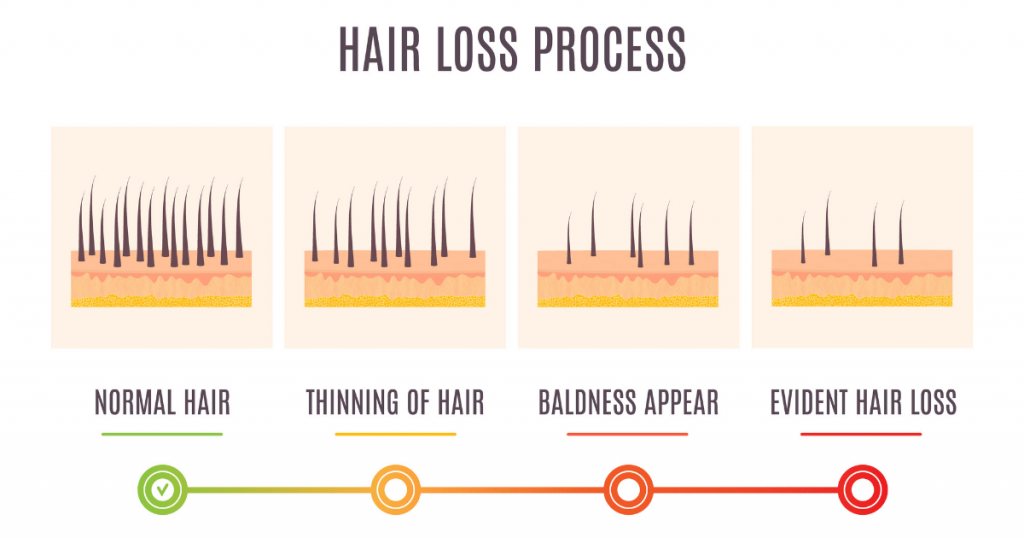
The average person loses 70-125 hairs a day. Due to the fact that most people have about 100,000 hairs on their heads, it’s very hard to notice. It is normal for our hair to thin as we age. Hormonal changes, certain medical conditions, and medications can also cause hair loss.
The signs of hair loss can take many forms. The following may be noticed:
- The part is being widened
- An area of baldness that grows slowly
- A ponytail that is thinner
- Your hair is gradually thinned
- Increasingly visible receding hairline
The signs of hair loss tend to appear gradually in millions of people. The signs of hair loss can be subtle, so you may not notice them for months or years.
Hair loss symptoms and signs
Some people develop symptoms and other signs of hair loss, in addition to less hair. In addition to hair loss, you may also experience:
- Symptoms such as redness, swelling, and sores that itch and leak pus – Folliculitis decalvans is known to cause this.
- Itching, burning, and tenderness in the area where you lose your hair – These symptoms may indicate an infection.
- Bald patches with sores or blisters that ooze pus – These are signs of a fungal infection on the scalp.
- Before sudden hair loss, there may be burning or stinging – Some people with alopecia areata experience this.
- Psoriasis patches on the scalp – Most people with psoriasis get them on their scalp at some point, causing temporary hair loss.
You will experience different signs and symptoms depending on what is causing your hair loss.
Hair loss – the cause and manifestations
There are many reasons why hair falls out. Your hair loss can be caused by a variety of factors, and can occur in various ways:
- Hair cannot regrow on its own
- Hair becomes thinner as time passes
- Gradually or suddenly hair falls out
If that happens its necessary to use a treatment to regrow hairs, because a permanent hair loss can be prevented only with immediate care. If your hair part is widening, you see bald spots, or you lose more than 125 hairs a day, you may be experiencing hair loss and should see a dermatologist or make preventive test of the pilosebaceous units of the scalp in a pharmacy.
As said above there are several possible causes and types of hair loss. In spite of the fact that it is not always possible to prevent hair loss, if you see a dermatologist or specialized consultant early enough, you might be able to get treatment and try to get the best possible outcome. As we said there are many reasons why people lose their hair and below, we will go through some of them.
Bad hair care habits damage hair
It is possible to damage your hair if you color or perm it. Hair loss can result from this damage over time. Also, you should treat your hair with a product that contains only natural ingredients. Do not use shampoos that contain a long list of harsh chemicals. Despite its natural ingredients, shampoos do little to protect your hair against day-to-day damage and the elements.
Hair conditioner doesn’t just wash away oil and grime as shampoo does. Too many styling products contain harsh ingredients that not only dry and damage your hair but also leave your hair thick and crunchy. In addition, hair gels, pomades, and waxes are absorbed much more deeply into your scalp than shampoos and conditioners. When you use a product with potentially harmful ingredients, those chemicals will penetrate your hair follicles and negatively affect your hair growth.
Hair loss caused by sexually transmitted infection
HIV and syphilis are the only STDs that cause hair loss. However, hair loss is not a “typical” symptom of either disease. Since HIV attacks and inhibits the body’s immune system, it can lead to a number of opportunistic infections. Due to this, HIV-positive people are at risk for conditions like Telogen Effluvium (TE). In such a case, hair loss could even be extreme – it could come out in handfuls. It is possible for people who have HIV to develop diffuse alopecia as well. Nonetheless, less than 10% of HIV patients experience this symptom.
Treponema pallidum causes syphilis, a bacterial infection characterized by painless sores around the area of infection – typically in the rectum, the groin, or the mouth – at the beginning of the four distinct stages of the infection. Antibiotics can easily prevent this primary phase from progressing if diagnosed quickly. Syphilis can cause patchy hair loss on the scalp, eyebrows, beard, and elsewhere if left untreated.
Traction alopecia
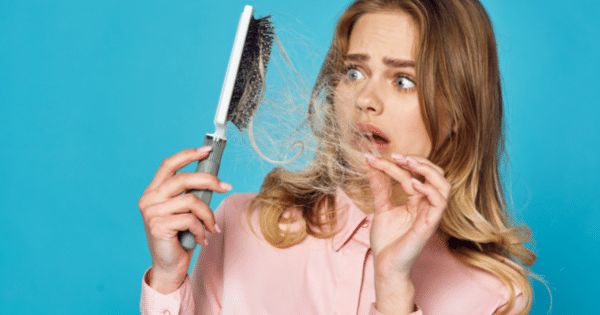
Continuously pulling your hair back can lead to permanent hair loss if you wear it tightly pulled back. The medical term for this condition is traction alopecia. If you frequently wear your hair in a tight ponytail, bun, or braid, especially if you use chemicals or heat on it, you may develop this condition. The traction alopecia condition can be reversed if you stop pulling your hair back.
Unless your hair follicles have been permanently damaged, traction alopecia can usually be reversed, according to the British Association of Dermatologists. It is possible to reverse traction alopecia if you take preventive measures early on. You are more likely to prevent irreversible damage by treating hair loss symptoms early. Make an appointment with a medical professional today to get started on your journey to a fuller head of hair.
Hair loss happens as we age
You have a 25% chance of balding by the age of 30. Also, 50% of men have noticeable hair loss by the age of 50. By the time they reach 60, two-thirds of the population are either balding or showing signs of balding. Even though hair loss is more common as you age, it does not necessarily make it easier to accept. If you are suffering from hair loss, it is never too late to take action. Whatever stage you’re at, there are solutions that can help.
Because hair growth slows with age, most people notice some hair loss. Hair follicles stop growing hair at some point, causing our scalp hair to thin. The color of the hair also starts to fade. It is natural for a woman’s hairline to recede over time. Hereditary factors, hormonal changes, medical conditions, or aging can cause it. Men are more likely to lose hair on their heads than women. A bald head is usually a result of excessive hair loss. Baldness is most often caused by hereditary hair loss with age.
Hereditary hair loss (androgenic alopecia)
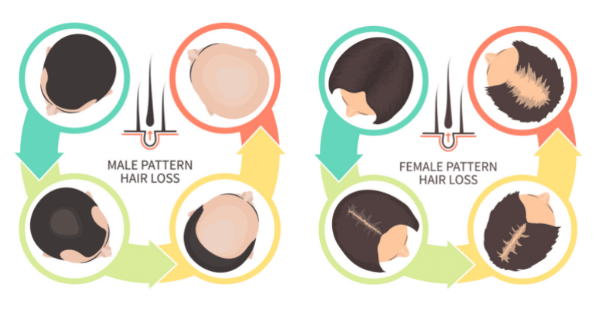
The condition is referred to as androgenic alopecia, regardless of whether it occurs in men or women. This type of hair loss affects both men and women, making it the most common cause of hair loss worldwide. Male pattern hair loss occurs in men. Female pattern hair loss occurs in women.
In either case, it means you have inherited genes that cause your hair follicles (what each hair grows from) to shrink and eventually stop producing hair. The process of shrinking can start as early as your teens, but it usually begins later in life.
A receding hairline or bald spot at the top of a man’s head is the first sign of hereditary hair loss. A widening part or overall thinning are usually the first signs of hereditary hair loss in women.
Circular hair loss and alopecia areata
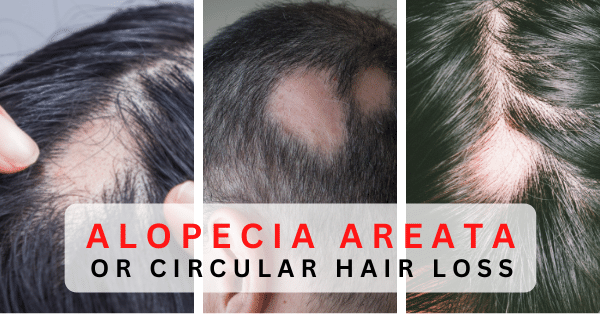
Alopecia areata is an autoimmune condition that often results in unpredictable hair loss. In the United States, it affects approximately 6.8 million people. Globally, it affects 147 million people. Hair usually falls out in small patches about the size of a quarter. Despite the small patches, alopecia areata can affect wide areas of the scalp.
Alopecia areata occurs when the immune system attacks hair follicles (which hold the hair in place), causing hair loss. The first signs of alopecia areata are typically small bald patches. The underlying skin appears normal and unscarred. They usually have a round or oval shape, although they can take on many shapes. Most commonly, alopecia areata affects the scalp and beard, but it can affect any part of the body with hair.
Scarring hair loss disorders (Scarring alopecia)
Cicatricial alopecia, or scarring, is an inflammatory condition that destroys hair follicles, causing scarring and permanent hair loss. Hair follicles cannot grow hair once they have been destroyed. This can be caused by a variety of conditions. This group of conditions is known as cicatricial alopecia. In most cases, corticosteroids are used to treat scarring alopecia, such as lichen planopilaris and pseudopelade, which are characterized by lymphocyte inflammation of hair follicles.
Scarring alopecia can lead to permanent hair loss. Due to this, scarring alopecia should be treated aggressively. There is a wide variety of treatment options depending on the particular diagnosis. If scarring alopecia has reached the burnt-out stage and there has been no more hair loss for a few years, bald patches can either be surgically removed or transplanted with hair follicles taken from unaffected areas.
Hair loss caused by scalp psoriasis

People with plaque psoriasis often develop psoriasis on their scalps. Psoriasis is an autoimmune disorder in which skin cells form more rapidly than they should. During inflammation, these skin cells pile up on each other, causing silver or red itchy plaques to form. Hair follicles can become weak and brittle when inflammation increases. When psoriasis is combined with an itchy, dry scalp, you might feel inclined to scratch or pick at the scales.
Psoriasis of the scalp can cause temporary hair loss. Itching caused by scaling may be relieved by scratching your head. You may lose your hair as a result of that. Hair loss may also occur when the scales are forcefully removed to treat psoriasis. When scalp psoriasis is controlled, most people with hair loss experience complete regrowth of their hair. It is critical to seek medical attention as soon as possible, as scarring from psoriasis (common in long-term scalp psoriasis) can cause permanent hair loss.
Hair loss and thyroid disorders

Thyroid conditions occur when your thyroid gland either produces too much or too little of certain hormones. It is possible to see thinning hair if you have thyroid problems. Untreated thyroid conditions can cause hair loss if they are severe. With hypothyroidism and hyperthyroidism, hair loss may develop slowly. There won’t necessarily be bald patches or patches missing. Rather, your hair may appear thinner all over.
Hair loss caused by thyroid conditions is typically temporary. It is possible to experience hair loss even after starting drugs to treat your condition. Many people worry that drugs are causing hair loss, but it may have more to do with the hair’s life cycle. Within several months of treatment, hair growth may be noticeable. The new hair growth may differ in color or texture from your original hair.
Hair loss caused by medication

Hair loss is a possible side effect of some medications. If you suspect a medication is causing your hair loss, ask the doctor who prescribed it if it causes hair loss. Don’t stop taking the medication before consulting your doctor. There are serious health risks associated with suddenly stopping some medications.
Medicines are designed to treat a variety of health conditions, but they sometimes have unwanted side effects. Some drugs can cause excessive hair growth, changes in hair color or texture, or hair loss. Any type of hair loss, including drug-induced hair loss, can affect your self-esteem. Fortunately, in most cases, it’s reversible once the drug is stopped.
Chemotherapy and hair loss
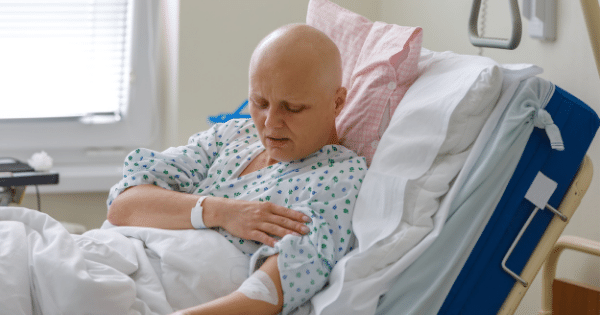
Within a few weeks of starting chemotherapy or radiation treatment for your head or neck, you may lose all (or most) of your hair. You may lose hair all over your body after chemotherapy, not just on your scalp. Eyebrows, eyelashes, pubic hair, armpits, and other body hair can also fall out. There are some chemotherapy drugs that are more likely to cause hair loss than others, and different doses can lead to anything from mere thinning to complete baldness.
Once your chemotherapy treatment is over, your hair will grow back unless you had very high doses of certain chemotherapy drugs. Hair may take longer to grow back in some people after treatment with a type of chemotherapy called docetaxel. Some people may experience permanent hair loss. This is rare and usually depends on the dose you’ve taken and how long you’ve taken it. If you are concerned about this, talk to your doctor.
Losing hair from stress
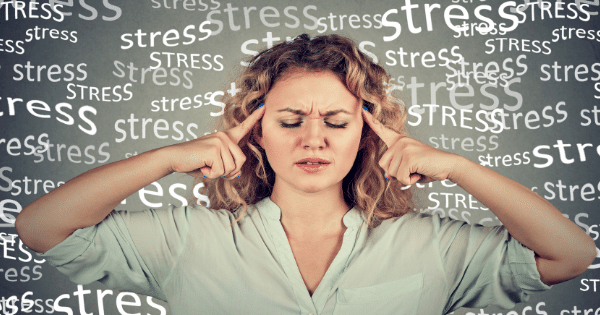
It’s no secret that stress levels are high, and for some, that may mean fewer hairs on their heads. Several types of hair loss have been linked to significant emotional stress, including telogen effluvium. The way you handle stress can have an impact on your hair loss. Having a stressful life event and not seeking help could further cause hair loss.
After surgery or illness, you may notice more hairs on your brush or on your pillow. It can also happen after a stressful event in your life, such as a divorce or the death of a loved one. Dermatologists should be consulted if you experience chronic hair loss, patchy hair loss, or hair loss that is accompanied by redness, itchiness, or pain.
Hair loss caused by hormone imbalance

Temporary hair loss can be caused by hormonal imbalance, which can have severe consequences. Hair loss is primarily caused by hormonal imbalance in men. The male hormone testosterone is responsible for severe hair loss. In the hair follicles, an enzyme called 5 alpha-reductase converts testosterone into dihydrotestosterone (DHT).
Hormonal imbalances can cause hair loss or hair thinning in men and women. In many cases, treating the imbalance will help your hair grow back. The thyroid can also cause hair thinning, although most people think of estrogen or testosterone when they think of hormone imbalances. Menopause can also trigger hormonal hair loss in women because it affects the production of many hormones. As soon as your hormonal imbalance is corrected, your hair should start growing again. You’ll also probably feel more energetic and better overall.
Infections that cause hair loss
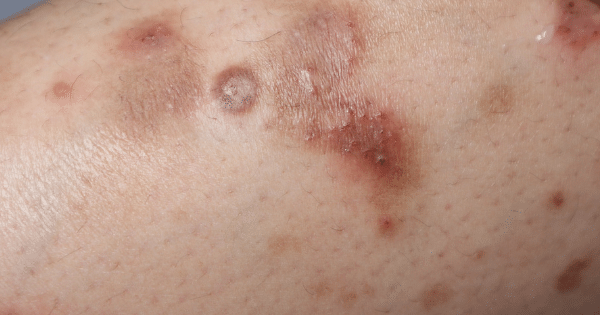
Infections of the scalp can cause scaly and sometimes inflamed areas. There are a number of illnesses and infections that can cause hair loss. Hair thinning or balding is caused by fungal skin infections, infections that cause a high fever, and bacterial infections like syphilis. Hair growth can be restored and future hair loss can be prevented by treating the underlying infection.
Hair loss can be caused by a variety of scalp conditions. Folliculitis, ringworm, piedra, seborrheic dermatitis, and psoriasis of the scalp are the most common causes of hair loss. Furthermore, you can lose hair across your scalp, eyebrows, and eyelashes due to a fungal infection or yeast infection on your head. In the event of a primary health problem, seek medical attention first.
Lack of protein, iron, biotin, or zinc in food
Overall hair health can be improved by eating foods rich in vitamins and minerals. Hair loss can occur if you don’t get enough of one or more of these nutrients. →

Biotin (vitamin B7) is widely available in foods, meaning that deficiency is rare among healthy individuals. Fish, meat, eggs, nuts, seeds, and vegetables are the best natural sources of biotin. The deficiency of biotin can cause brittle nails, rashes on the skin, as well as hair loss or hair thinning. The vitamin B7 plays an important role in the production of keratin.

Iron deficiency can cause hair loss in both males and females. According to a study published in the Journal of Korean Medical Science, iron may not only contribute to hair loss, but may also contribute to genetic male- and female-pattern baldness.
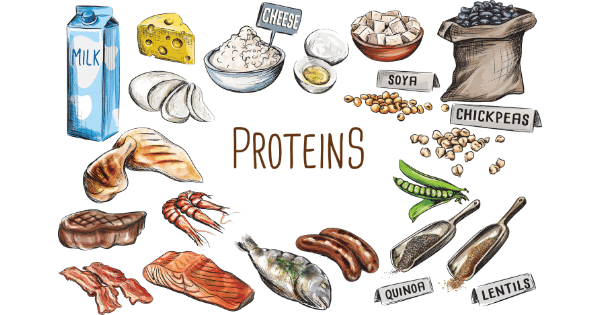
Protein deficiency can sometimes result in hair loss. People who follow crash diets that exclude protein or who have abnormal eating habits may suffer from protein malnutrition. During this time, the body will shift growing hairs into the resting phase in order to conserve protein.

Zinc plays a critical role in hair tissue repair and growth. Furthermore, it contributes to the proper functioning of the oil glands surrounding the follicles. When zinc levels are low, hair loss is a common symptom. It has been shown that supplementing zinc may reduce hair loss associated with zinc deficiency.
Hair loss due to poisoning
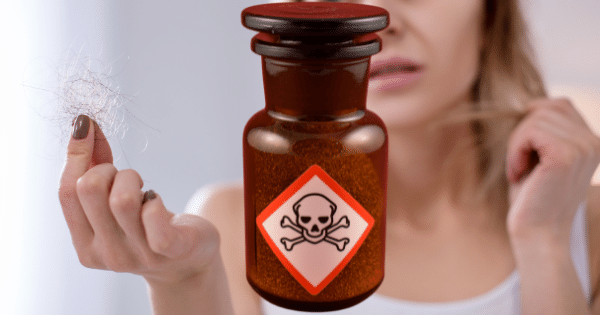
When consumed in less than lethal doses, certain poisons can cause hair loss. Many times, hair loss is the first sign of poisoning. It is possible to lose your hair slowly if you are poisoned. Among the poisons that can cause hair loss are lithium, mercury, thallium, and arsenic. For example, rat poisons contain warfarin, which can also cause hair loss if consumed in large quantities. Hair loss can also be caused by taking excessive amounts of vitamin A or selenium.
Gold, cadmium, mercury, bismuth, lithium, thallium, and arsenic are poisonous metal salts and heavy metals. Inhalation or ingestion of them can cause hair loss when exposed to them for a prolonged period of time in industrial settings. As a result, organic forms of metal salts tend to be more readily absorbed, more slowly eliminated, and more toxic than inorganic forms.
The use of arsenic can be found in the manufacture of glass, metal refining, silicon chip manufacturing, insecticides, rat poisons, fungicides, and wood preservatives. The consumption of mercury-containing seafood, as well as exposure to mercury-containing medications, paints, fungicides, and industrial products, can cause mercury poisoning.
Hair loss after corona
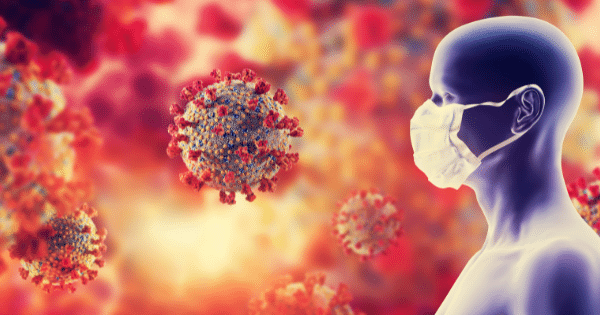
COVID-19 can cause a wide range of symptoms in people. The loss of hair has been reported in those who have recovered from COVID-19. According to the Centers for Disease Control and Prevention (CDC), hair loss is a potential long-term effect of COVID-19. →
COVID-19 may cause hair loss in people with severe cases. Currently, it is unclear whether this is true and the biological mechanism behind it. Following COVID-19, hair loss is consistent with a condition called telogen effluvium (TE). TE patients report sudden hair loss. Brushing or showering usually causes large clumps of hair to fall out.
Hair loss is usually noticeable 2 to 3 months after a triggering event in people who develop TE. It usually affects less than half of the scalp and lasts between 6 and 9 months. It is common for people to regrow their hair after this period. →
Telogen effluvium (TE) can be triggered by an acute illness with fever. People who have COVID-19 often experience fever as one of their symptoms. Hair grows in different phases, as we all know. When a stressor occurs, a large amount of hair stops growing and enters the resting phase (telogen).
It is also possible for TE to be triggered by stress. Stress can certainly be experienced both physically and emotionally when you suffer from an illness such as COVID-19. Quarantining has also been associated with some cases of TE. Hair rests for two to three months in the telogen phase before being shed from the scalp to allow new hair to grow. A highly stressful period or illness triggers TE hair loss so long after the event, which is why it happens long after the event.
How to prevent hair loss
In addition to affecting your appearance, losing your hair can also cause emotional stress and lower your self-esteem. However, there are a few things you can do to stop hair loss.
Take vitamins: Healthy-looking hair is often viewed as a sign of good health or beauty. In order to stay healthy and grow, your hair needs a variety of nutrients. A number of vitamins and minerals can have an effect on hair growth, such as vitamins A, B, C, D, E, iron, and zinc. Supplements containing biotin and zinc are prescribed by some medical professionals to maintain healthy hair, skin, and muscle tissue.
Eat extra protein: Insufficient protein can affect hair growth if you don’t get enough each day. In particular, vegans and vegetarians may need to eat more protein. The recommended daily amount of protein is 40 to 60 grams, and you may drink it rather than eating it. Eggs, Greek yogurt, beans, and legumes are also good sources of protein.
Maintain good hair and scalp care: You should avoid harsh hair treatments like hair dye, heating tools, and bleaching. As well as tight ponytails and braids, tight hairstyles can cause damage to your hair. Regularly washing your hair and scalp will keep your scalp healthy. Taking care of your scalp can improve its health, give you peace of mind, and even boost your confidence.
Shampoo against hair loss

When we notice signs of hair loss, we become self-conscious and search for the best products and treatments available. Beware of hair loss products and treatments that are scams. We want to make sure you don’t get scammed and that the products you buy really work.
How effective is hair loss shampoo?
Several hair growth solutions claim to help you regrow a full head of hair. However, which ones are authentic and which are fake? The best way to identify a fake is to read their claims. A product that claims to regrow your hair “instantly” or “quickly” should be avoided. Since hair growth is a slow process, any product that promises to help you regrow it quickly is a scam.
When you have a scalp condition, such as sebum in the hair follicle, liquified sebum in the follicle, seborrheic dermatitis, dandruff or psoriasis, that causes hair loss, you have to be aware that the follicle entrance and the follicle are occluded and these must be removed first.
Hair loss shampoos are products that remain on the scalp just for a few minutes during hair wash and as such have a very limited efficiency. A shampoo can’t solve a problem of hair loss, but a wrong shampoo can create an anomaly on the scalp and this way help enhance the problem of hair loss.
A shampoo is a detergent for the hair that doesn’t penetrate in the follicle as it is not dermocosmetically functional and its base is made of water and not essential and vegetal oils. Secondly a shampoo contains tensioactive ingredients (the ones that create foam) that also prevent the product to penetrate the hair follicle. Thirds as said above remains on the scalp for just a few minutes and as such can’t have any real function.
Bottom line a hair loss shampoo is basically a product that has no real function on hair loss. It sells very well because it’s the most accessible because of the lower price compared to lotions, ampules and food supplements.
Instead of using a hair loss shampoo advised to have a check-up with a dermatologist or specialized consultant that can evaluate the problem, the causes and other anomalies present on the scalp.
Hair loss treatments
There are many scams out there, but there are also many effective hair loss treatments. Don’t wait to seek help if you’re experiencing hair loss. In order to prevent irreversible damage to your hair, you should address the symptoms of hair loss as soon as possible. To begin your journey to a fuller head of hair, speak with a medical professional today.
It is possible for both men and women to lose their hair at any age. Some people experience it earlier than others. Our hair grows slower as we age. There are several causes of hair loss, and this is just one of them. There are also genetic factors and certain types of alopecia which can occur for a variety of reasons. When signs of hair loss occur, people begin searching for products and treatments. In order to find real products and real treatments, you should be thorough in your search and use reliable websites and doctors.
The best shampoo against hair loss
Choosing a shampoo should be based on the type of hair you have. It is important to choose a shampoo that is organic or herbal and does not contain harmful chemicals to prevent hair damage. With different options for every type of hair, organic and herbal shampoo categories attract everyone’s attention.
Every individual faces the problem of hair loss due to seasonal changes and daily stress. Shampoo and serum are recommended for treating hair loss. Organic and herbal ingredients should be considered when choosing shampoo and serum against hair loss. The use of products containing bad ingredients can increase hair loss rather than prevent it.
Hair loss spray
Clinical trials have shown that some hair loss sprays are very effective at treating hair loss. Efficacy varies from person to person, as with any medication. The earlier you begin treatment for hair loss, the greater your chances of success. Other spray options on the market contain natural ingredients, like rosemary or ginger extract. In order to promote hair growth, these ingredients are believed to stimulate blood circulation. However, there is limited research on their effectiveness.
One small study suggested rosemary essential oil may be very effective. Despite its small size and short duration, this study was well conducted. It is important to be cautious if you have sensitive skin, as these ingredients can irritate it. If you do decide to try a natural hair growth spray and notice that you suddenly have an itchy scalp, stop using the spray and contact a healthcare professional immediately.
Natural sprays can also be used to nourish your skin. These sprays are all considered to promote healthy scalps and hair growth. Talk to your healthcare provider if you’re interested in finding the best treatment option for your specific case of hair loss or thicker hair.
Minerals and vitamins for hair loss
The best source of vitamins for hair growth is food. Supplements may be helpful if you do not get enough nutrients from your diet. Those who are already deficient benefit the most from supplements, according to research. A balanced, real-food-based diet that includes plenty of nutrient-dense foods is the best way to get these nutrients. →
For hair to grow and stay healthy, it needs a variety of nutrients. Hair loss is often caused by nutritional deficiencies. In addition to age, genetics, and hormones, optimal nutrient intake also affects hair growth. If you are not deficient in vitamins and minerals, large doses can be harmful. Make sure you check with your doctor if you have a deficiency. Here are 5 vitamins and 3 other nutrients that may be beneficial to hair growth.
Vitamin A (retinol)
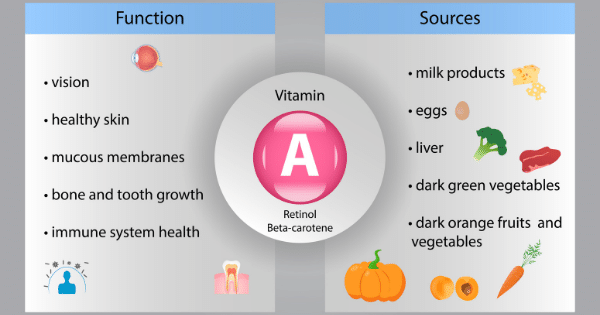
Vitamin A (retinol, retinoic acid) is necessary for vision, growth, cell division, reproduction, and immunity. Antioxidant properties are also associated with vitamin A. Free radicals, which are molecules produced when your body breaks down food or is exposed to tobacco smoke or radiation, might damage your cells when you consume antioxidants. Among other diseases, free radicals may contribute to heart disease and cancer.
Vitamin A is essential for the growth of all cells. This includes hair, which grows at the fastest rate in the human body. Vitamin A also helps the skin glands produce an oily substance called sebum. Sebum moisturizes the scalp and keeps hair healthy. A diet lacking in vitamin A can cause several problems, including hair loss.
It’s important to get enough vitamin A, but not too much. Hair loss can also be caused by too much vitamin A, according to studies. A recommended daily intake of vitamin A for adults is 900 micrograms (mcg) for men and 700 mcg for women.
Among the foods that are high in beta-carotene are sweet potatoes, carrots, pumpkins, spinach, and kale. Animal products such as milk, eggs, and yogurt contain vitamin A as well. A good source of omega-3 fatty acids is cod liver oil.
B vitamins

There are eight B vitamins in the vitamin B complex:
- B1 (thiamine)
- B2 (riboflavin)
- B3 (niacin)
- B5 (pantothenic acid)
- B6 (pyridoxine)
- B7 (biotin)
- B9 (folic acid)
- B12 (cobalamin)
A B7 vitamin called biotin is one of the best-known vitamins for hair growth. Biotin is a form of vitamin B7 that assists enzymes in breaking down proteins, carbohydrates, and fats. There are many benefits to taking biotin for your health. Besides helping convert food into energy, it is also necessary to create keratin, which makes up nails, skin, and hair.
In humans, biotin deficiency is associated with hair loss. Although biotin can be used to treat hair loss, those who are deficient have the best results. Due to its natural presence in many foods, deficiency is rare. Biotin is also very effective in the treatment of dandruff as it fights skin flaking from inside and promotes overall skin health.
Other B vitamins carry oxygen and nutrients to the scalp and hair follicles through red blood cells. Hair growth depends on these processes. In addition, each of these vitamins contributes to the overall health of your body.
Many foods contain B vitamins, including dark leafy salmon, whole grains, meat, seafood, nuts, seeds, almonds, etc. Vitamin B12 can only be found in animal foods. If you follow a vegetarian or vegan diet, consider taking a supplement.
Vitamin C (L-ascorbic acid)

Many foods, particularly fruits and vegetables, contain vitamin C (L-ascorbic acid), a water-soluble vitamin. Damage caused by free radicals can slow down hair growth and cause it to age. Vitamin C protects against free radical-induced oxidative stress. Furthermore, vitamin C is necessary for the body to create collagen, a protein crucial to hair growth.
The symptoms of a deficiency include higher susceptibility to infections, bleeding gums, frequent bruising and infections, poor wound healing, anemia, and scurvy. The vitamin C in your body also helps your body absorb iron, a mineral necessary for hair growth. In addition to collagen synthesis, vitamin C is essential for connective tissue, bones, teeth, and small blood vessels. Joints and skin elasticity are also maintained by collagen. In your bones, muscles, and blood, it makes up three-quarters of your skin and one-third of your protein.
It contributes to immune function, neurotransmitter production, collagen synthesis, and other functions in the body. You may reduce your risk of heart disease by getting enough vitamin C in your diet
Vitamin C is found in many fruits and vegetables, but it can also be obtained as a dietary supplement. Strawberries, peppers, guavas, and citrus fruits are all good sources of vitamin C.
Vitamin D

Low levels of vitamin D are associated with alopecia, the technical term for hair loss. In most research, vitamin D receptors are the focus of research on vitamin D’s role in hair production. Vitamin D levels should be adequate no matter what your age or stage of life is. According to my research, people with low vitamin D levels are more likely to suffer a heart attack, heart failure, stroke, diabetes, or high blood pressure later in life.
When your skin is exposed to the sun, your body produces vitamin D. However, several factors limit its production:
- Changes in absorption ability with age
- Being naturally dark-skinned
- Using sunscreen to prevent melanoma
- If you live above 33 degrees latitude
Most people may need to take vitamins to achieve a normal level of vitamin D in their blood because the amount of sun they would need is probably greater than what is safe for their skin. The body benefits from either form of vitamin D (D2 or D3), but very few foods contain it naturally or are fortified with it. To make up for the difference, doctors recommend supplements.
Sardines, egg yolks, cod liver oil, salmon, mackerel, tuna, shitake mushrooms, and others are good sources of vitamin D. Vitamin D is often added to milk, infant formula, yogurt, orange juice, breakfast cereals, margarine, cheese, and butter.
Vitamin E

Foods such as nuts, seeds, and leafy green vegetables naturally contain vitamin E. It is a fat-soluble vitamin that plays an important role in many bodily processes. Studies have proven that it prevents scars because it is good for the skin, hair, and nails. Since vitamin E has antioxidant properties, it may contribute to maintaining healthy hair and scalp.
The antioxidant properties of vitamin E may reduce oxidative stress and free radicals that break down the hair follicle cells on a person’s scalp. It is used to treat and prevent diseases of the heart and blood vessels, such as hardening of the arteries, heart attacks, chest pains, strokes, irregular heartbeats (atrial fibrillation), heart failure, and leg pain from blocked arteries, and high blood pressure. The use of vitamin E has also been found to reduce the side effects of chemotherapy.
The benefits of vitamin E for hair health have been widely reported, but many of these claims lack rigorous scientific evidence. A study found that supplementing with vitamin E for 8 months increased hair growth by 34.5% in people with hair loss. Compared to the placebo group, the increase was only 0.1%.
The best way to get the most benefit from vitamin E is to take it with food. Many foods contain it, including vegetable oils, cereals, meat, poultry, eggs, fruits, vegetables, and wheat germ oil. You can also buy it as a supplement.
Iron
Red blood cells carry oxygen to your cells with the help of iron. As a result, it is important for many bodily functions, including hair growth. The loss of hair can occur naturally as you age, but it can also be caused by nutritional deficiencies, especially in women under 50. To keep your hair and skin healthy, boost your iron intake (through lean beans, nuts or meats).
It is very important to get enough iron for hair growth and health, and most hair loss caused by iron deficiency is not permanent. Anemia, which causes iron deficiency, is a major contributor to hair loss. Women are more likely to suffer from it. Your body needs iron to produce hemoglobin, a protein found in red blood cells. By carrying oxygen to your body’s cells, it helps them grow and repair. Cells in your body that promote hair growth are included in this category.
A doctor should be consulted if you’ve experienced hair loss due to an iron deficiency. It is possible to determine if you have low iron levels by taking a blood test. A well-balanced diet can help you get the recommended amount of iron each day. Choose iron-rich foods like peas, spinach, broccoli, tofu, and meats like lamb and beef.
A lack of iron prevents your body from making hemoglobin in your blood. As part of the process of growing and repairing your body’s cells, hemoglobin transports oxygen to the cells that stimulate hair growth. Hair loss and iron deficiency can both be reversed with treatment.
Zinc
Zinc deficiency can be managed by absorbing more from food and excreting less. An inadequate intake of zinc, however, will have a negative impact on bodily functions. There are many symptoms of zinc deficiency, including hair loss, deformed nails, canker sores, and rashes. Zinc deficiency affects one-third of the world’s population, making it a global health problem.
More than 90 enzymes require zinc to function. Vegans and vegetarians are more likely to suffer from zinc deficiency. Plants and seeds naturally contain phytic acid, which binds to zinc and reduces its absorption. The human body is not designed to produce or store zinc, so it must be obtained from food or supplements.
In order to grow and repair hair tissue, zinc is important. Additionally, it keeps the oil glands around the follicles functioning properly. Hair loss is one of the most common symptoms of zinc deficiency. Supplementation may reduce deficiency-related hair loss if zinc deficiency is resolved.
A high dose of supplements has also been reported to contribute to hair loss, according to anecdotal reports. Due to this, whole foods may provide you with more zinc. Lobsters crabs, and oysters are excellent sources of zinc, which is essential for health. Fish, red meat, chickpeas, beans, and lentils are also high in zinc.
Protein
Hair is almost entirely made of protein. Keratin, a type of protein found in hair follicles, is the building block of hair. Because hair follicles are mostly made up of protein, eating enough protein is important for hair growth. Protein deficiency in the diet has been linked to hair loss. Protein deficiency can cause a large number of strands to enter the resting phase at the same time, resulting in hair loss.
Low-protein diets slow hair growth, causing hair loss and decreased hair growth. When you do not consume enough protein, your body will ration the quantity available by cutting off the supply to the hair follicles. For tissue repair and new tissue construction, every cell needs protein. Without enough protein, your hair will become dry and brittle.
The importance of protein for hair health
Proteins are essential to the growth, maintenance, and repair of tissues in our bodies. There are a number of factors that can contribute to hair loss, including prolonged protein deficiency. When protein is lacking in the body, vital organs are immediately protected by the body. Hair doesn’t play a significant role in survival, so it is the first to go. In other words, a lack of protein will result in heavy hair loss because the body deems it unnecessary to provide valuable protein to hair.
Protein nutrition is determined by the amount of essential amino acids it contains. The amount of essential amino acids in different foods varies. There are many foods that are good sources of protein, such as eggs, white-meat poultry, lean beef, fish, seafood, fat-free or low-fat cheese, low-fat milk, low-fat yogurt, lean pork, and beans. In general, vegetarians and vegans can get enough protein by eating a variety of foods.
Sources
https://www.aad.org/public/diseases/hair-loss/causes/18-causes
https://www.webmd.com/skin-problems-and-treatments/hair-loss/drug-induced-hair-loss-2
https://my.clevelandclinic.org/health/diseases/16921-hair-loss-in-women
https://www.ncbi.nlm.nih.gov/pmc/articles/PMC4606321/
https://www.webmd.com/connect-to-care/hair-loss/shampoo-for-hair-loss
https://www.dermatologymohsinstitute.com/blog/beware-of-hair-loss-product-and-treatment-scams
https://pubmed.ncbi.nlm.nih.gov/34634163/
https://www.healthline.com/nutrition/best-vitamins-hair-growth
https://www.ncbi.nlm.nih.gov/pubmed/27095961
https://www.ncbi.nlm.nih.gov/pubmed/19172026
https://www.ncbi.nlm.nih.gov/pubmed/22741940
https://health.clevelandclinic.org/im-low-in-iron-can-this-cause-me-to-lose-my-hair/
